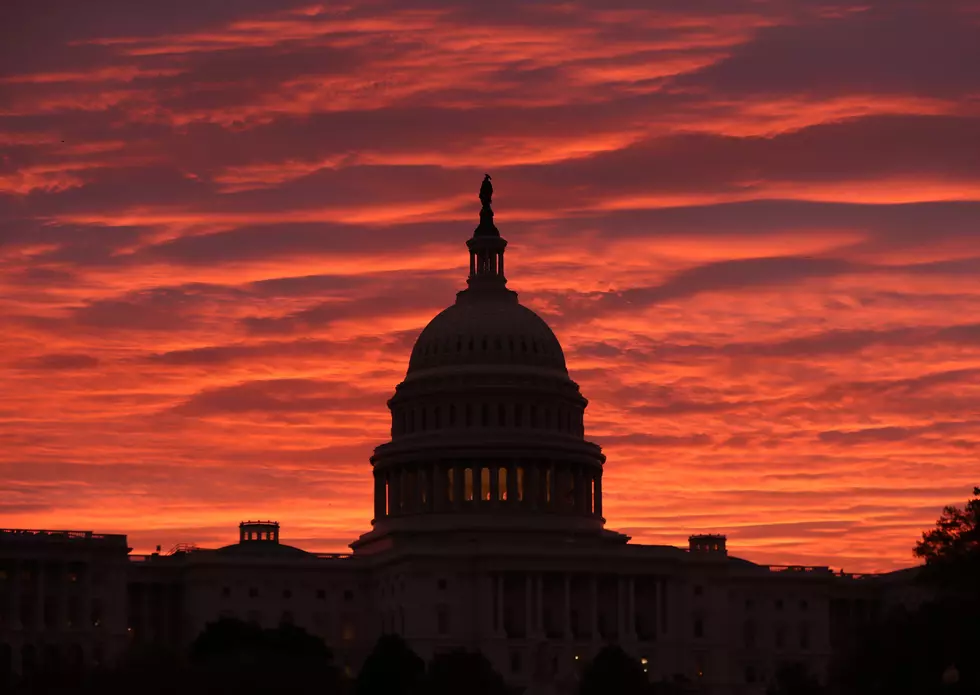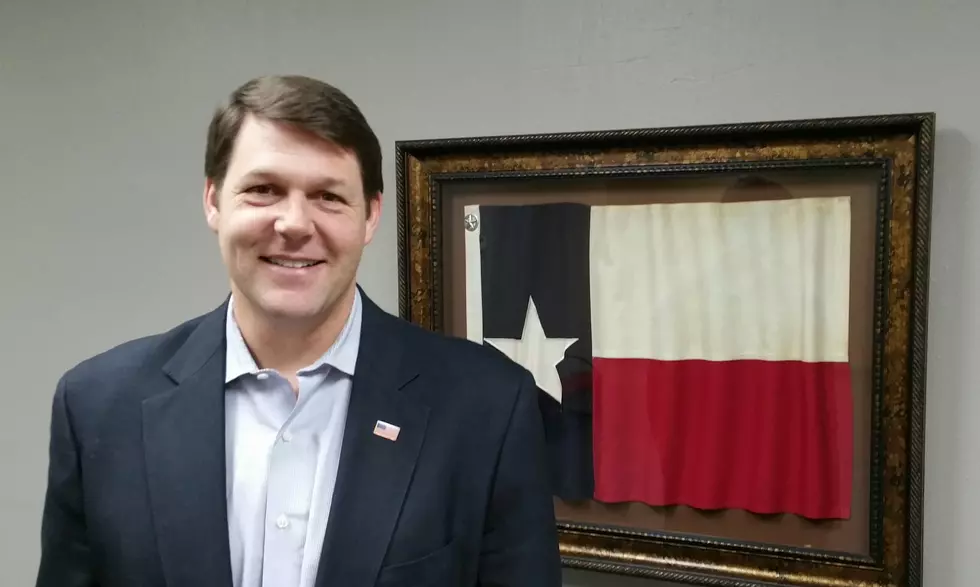
Chad’s Morning Brief: Could the Individual Mandate Still Be Delayed? Nearly Half Are Ready To Throw Everyone Out of Congress, and Other Top Stories
Here is your Morning Brief for the morning of October 22, 2013. Give me your feedback below and tune in to The Chad Hasty Show for these and many more topics from 8:30 to 11am. Remember, you can listen online at KFYO.com or on your iPhone/Android with the radioPup App.
Delaying the Individual Mandate
When President Obama decided to delay Obamacare for businesses I told you that I believed he would do the same for the individual mandate. Conservative Republicans shutdown the government trying to convince Obama to give individuals a break. During that time though the White House never caved. With the failure of the Obamacare website though, the White House isn't closing the door just yet on a delay according to FOX News.
The White House appeared to leave the door open Monday to delaying the so-called individual mandate in the federal health care law, as President Obama acknowledged the main website for enrollment is not working as it should.
Press Secretary Jay Carney addressed concerns over the mandate at a press briefing shortly after Obama, in the Rose Garden, personally acknowledged failures with the HealthCare.gov site and vowed that "these problems are getting fixed."
Carney was peppered with questions on whether the administration would be open to delaying the requirement on individuals to buy health insurance, if the website continues to lock out would-be customers. Echoing Obama, Carney said repeatedly that the country is just three weeks into a six-month enrollment process and suggested it's too early to make any decisions of that magnitude.
But he did not close the door on the option.
Asked if the administration is looking for flexibility in applying the mandate, Carney said: "Whatever conclusions you draw about the way the law is written, I think you can draw. The law is clear that if you do not have access to affordable health insurance, then you will not be asked to pay a penalty because you haven't purchased affordable health insurance."
He added that the administration is focused on providing that access.
Carney was vague on what the administration's next move would be, aside from bringing in tech experts from the private sector to try and repair the website. Without offering further explanation, he said the Department of Health and Human Services is "looking to align the policies with the disconnect between the open enrollment period and the individual responsibility time frames, which exist on the first year only."
Whether that signals the administration would consider even a short-term delay of the mandate is unclear.
Technically, Americans are supposed to obtain health insurance by the end of March 2014 to avoid a fine. But analysts have since calculated that, considering the time it takes to process all the relevant documents, most would have to seek coverage by mid-February.
Republicans have used the website failures to fuel their case that the individual mandate should be delayed. They've been pushing for the delay ever since the administration announced earlier this year it would offer some employers a one-year reprieve from a separate mandate to extend insurance to workers.
I still believe the administration will delay the individual mandate. They may wait until the last minute, but I believe due to politics they will.
Throw Them Out!
Should everyone in Congress be replaced? According to the USA Today, nearly half of you say yes.
In a nationwide USA TODAY/Princeton Survey Research Poll, just 4% of those surveyed — equal to the margin of error — say Congress would be changed for the worse if nearly every member was replaced next year. Nearly half say it would work better. About four in 10 say a wholesale overhaul wouldn't make much difference.
Those findings are similar to the public's views in previous years when voter dismay cost one side or the other control of the House. In 1994, when Democrats lost their majority, 40% said Congress would be better off if most members were replaced. In 2006, when Republicans lost control, 42% held that view.
Now 47% say Congress would work better if nearly every seat changed hands next year. (The question wasn't asked in 2010, when Republicans regained control.)
Among Republicans and Republican leaners, a 52% majority say Congress would be better off if most of the current members were replaced — even though the GOP now controls the House and holds most of those seats.
"This is a real warning about the GOP pursuing this strategy in 2014," says Steven Schier, a political scientist at Carleton College in Northfield, Minn., and co-author ofAmerican Government and Popular Discontent, published this spring. "The telling moment will come in January and February, when we face another debt limit and a possible shutdown."
In contrast, the level of discontent was lower before elections in which control of the House didn't change hands. In 2002, just 26% said Congress would be better off if most members were replaced.
Of course, the new poll was taken a year before voters go to the polls, time for new issues to emerge and the political landscape to be reshaped.
In the aftermath of the shutdown, though, Republicans clearly are bearing the brunt of the blame. By 2-to-1, 39%-19%, those surveyed say Republicans deserve more blame, not Democrats. Thirty-six percent say the two parties share the blame equally.
Even Republicans, presumably inclined to blame the other side, are divided about whether responsibility belongs to the Democrats are to both parties equally. That's not true among Democrats: Eight in 10 say the GOP is largely to blame.
Democrats by 2-1, 22%-11%, have a more favorable opinion of their party in the aftermath of the shutdown.
But the GOP takes a hit among its own troops, highlighting the divide between those who align with the Tea Party and those who don't. Tea Party Republicans, a little more than a third of all Republicans and those who lean to the GOP, applaud the recent tactics: By 29%-18%, they say events of the last few weeks have given them a more favorable rather than less favorable opinion of the party.
For Republicans and Republican leaners who don't support the Tea Party, their view of the GOP has gotten worse. By 27%-12%, they have a less favorable rather than more favorable opinion.
"There's a great internal debate in the GOP about whether any of these tactics made sense," Schier says.
The survey of 1,001 adults, taken Thursday through Sunday, has a margin of error is +/-4 percentage points.
One more sign of trouble for the GOP: By nine points, Americans who live in districts they say are represented by a Republican say the deadlock has made them less likely to vote for the incumbent. Those who say they are represented by a Democrat are by one point more likely to support him or her.
I think throwing them all out is a nice line, but would it really change anything? Probably not but voters can still send a message by defeating the weak Republicans.
Other Top Stories:
These and many more topics coming up on today’s edition of The Chad Hasty Show. Tune in mornings 8:30-11am on News/Talk 790 KFYO, streaming online at kfyo.com, and now on your iPhone and Android device with the radioPup App. All guest interviews can be heard online in our podcast section after the show at kfyo.com.
More From News/Talk 95.1 & 790 KFYO

![The Next Great Debate: Time in the United States [POLL]](http://townsquare.media/site/192/files/2018/03/GettyImages-109832459.jpg?w=980&q=75)







